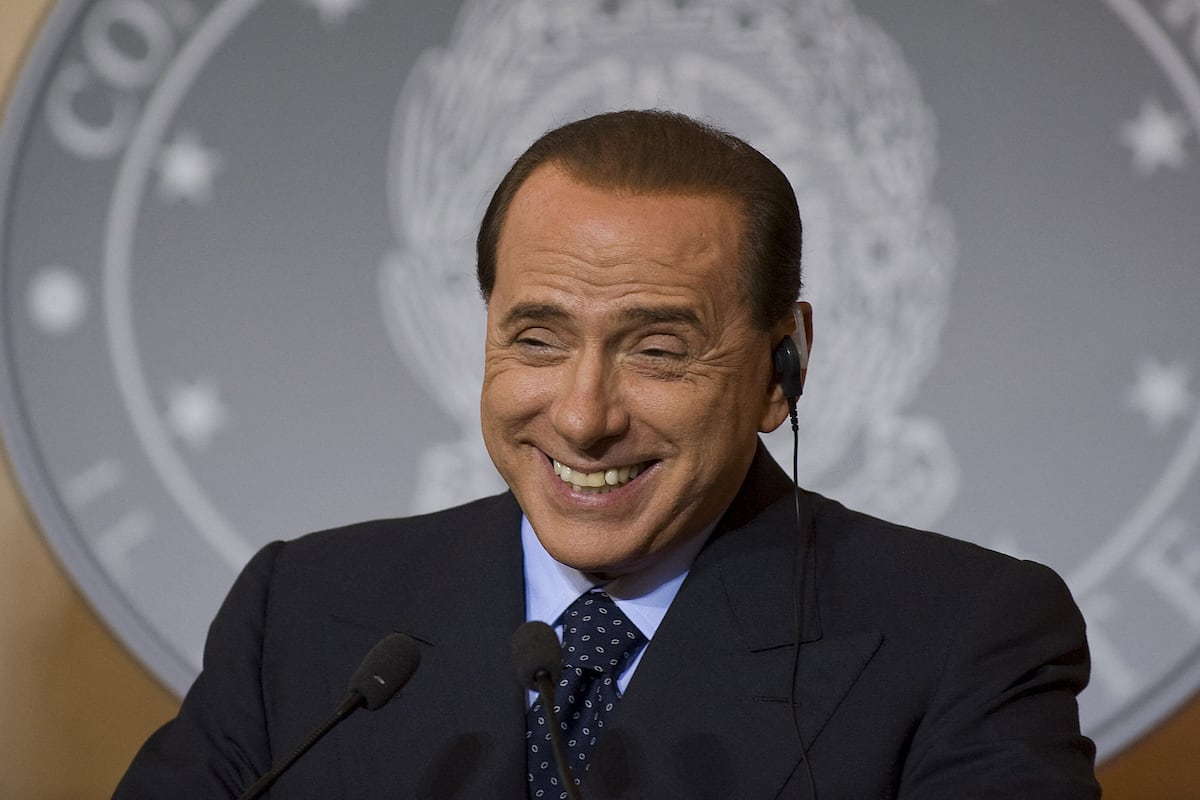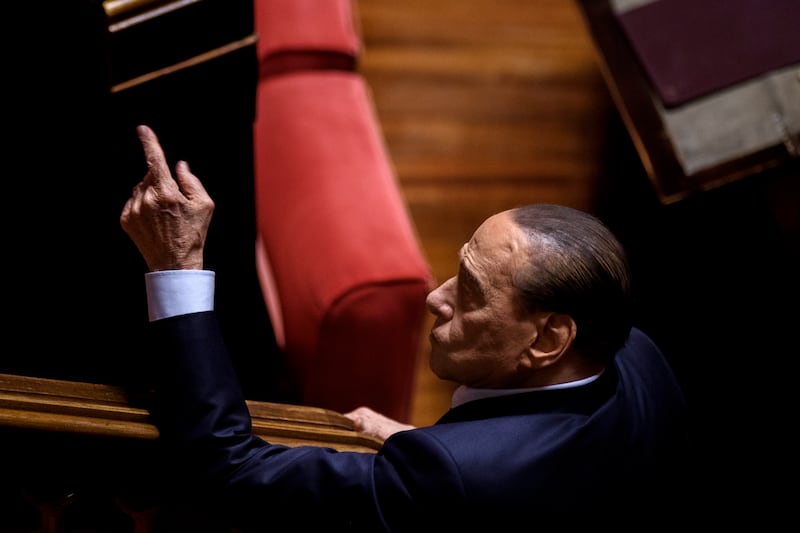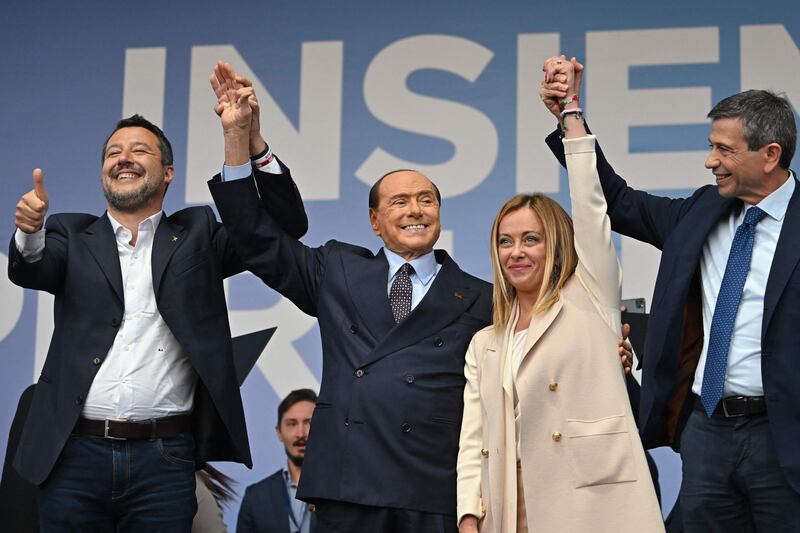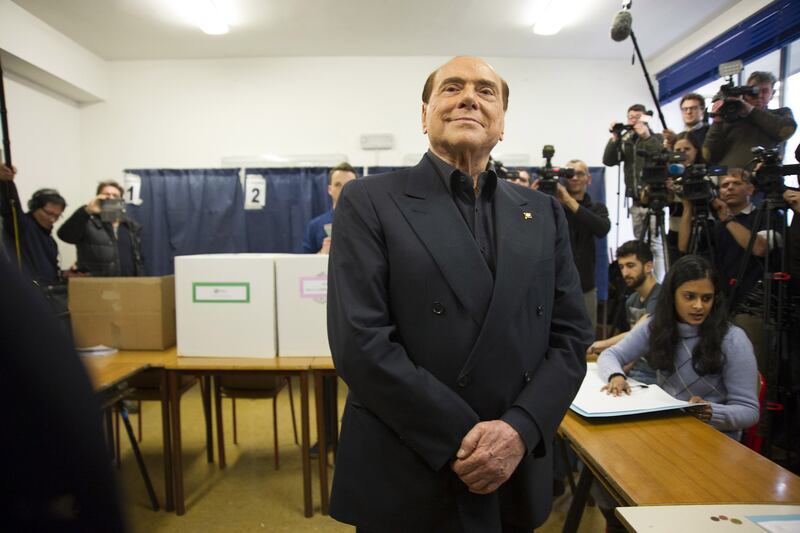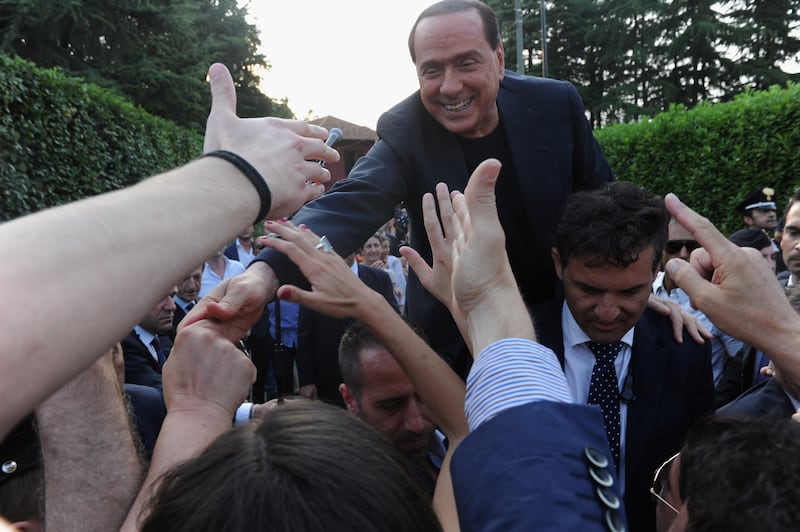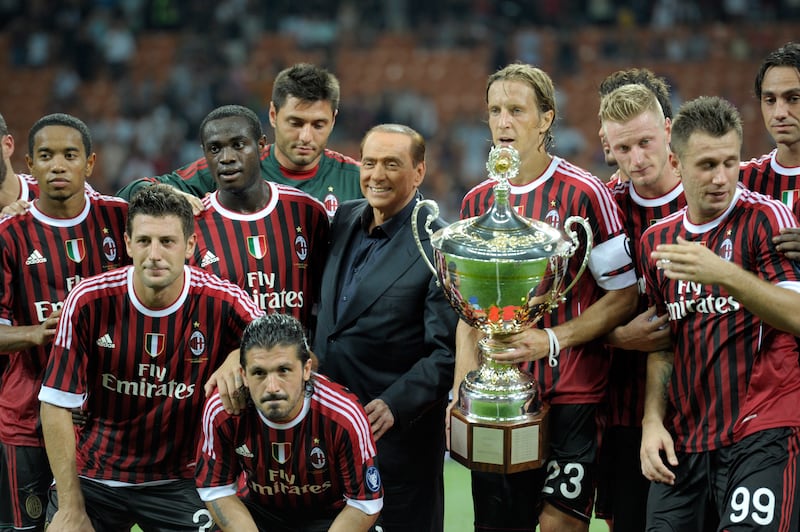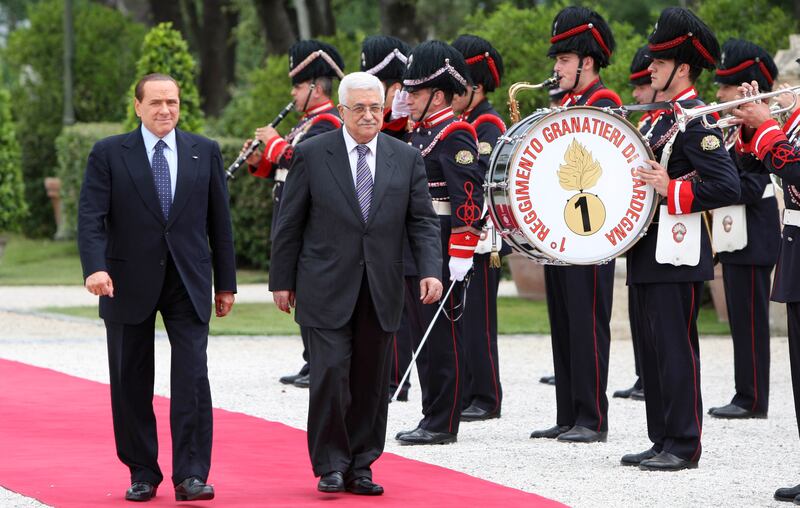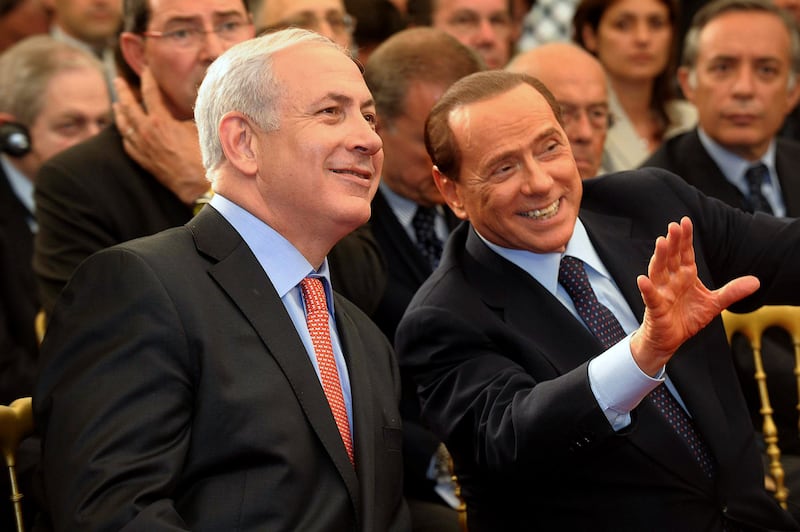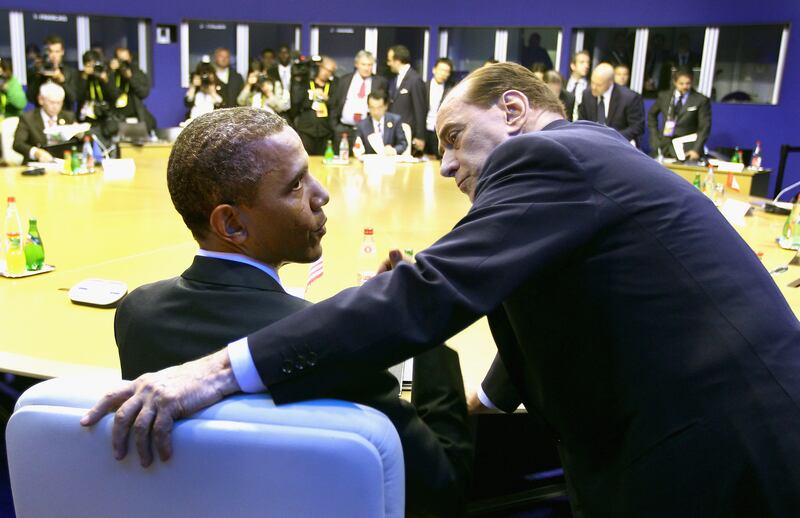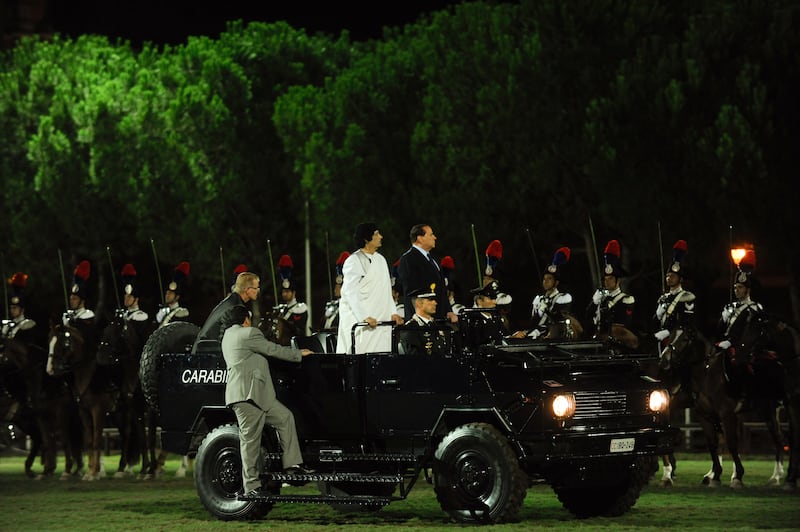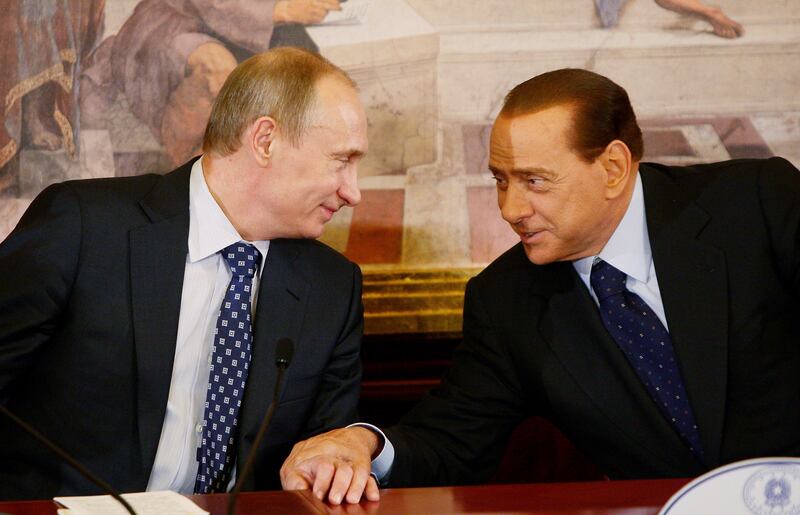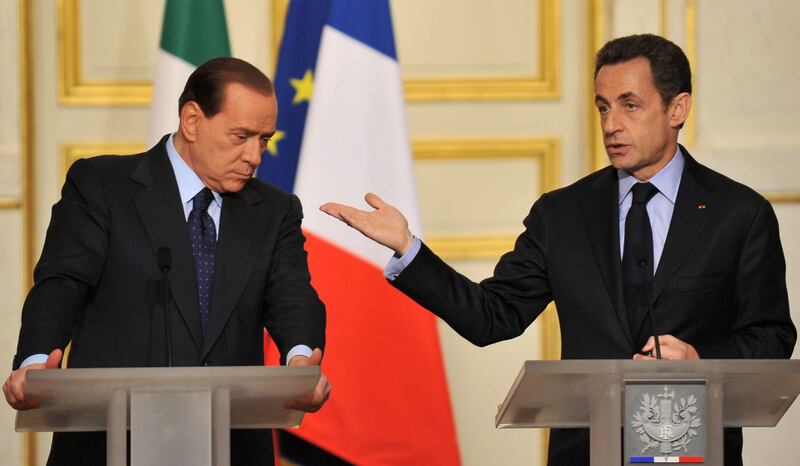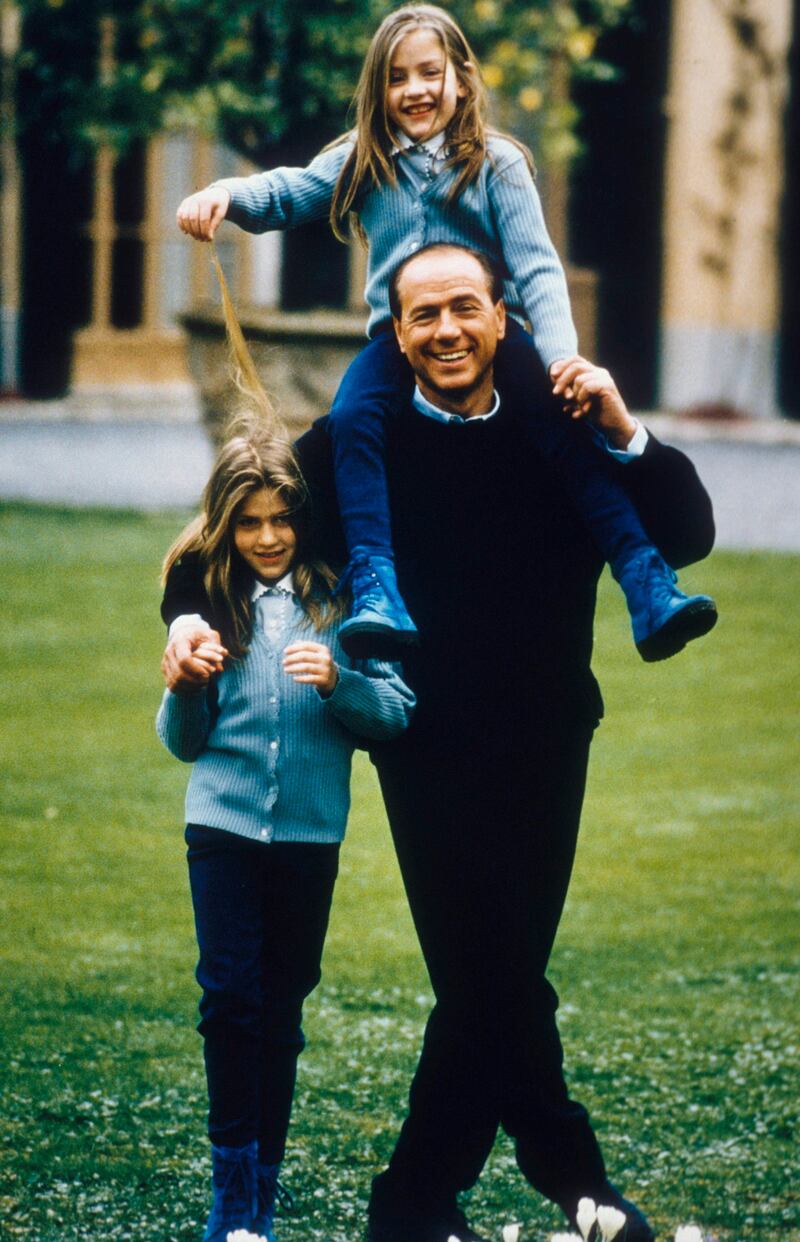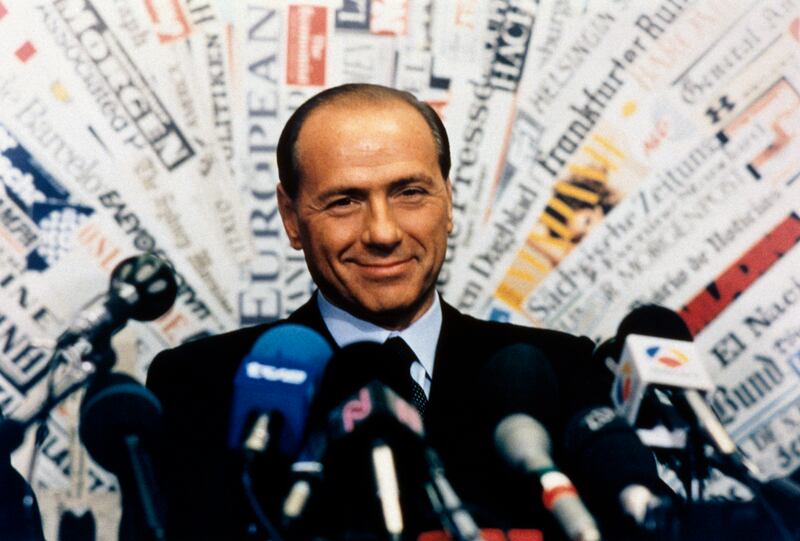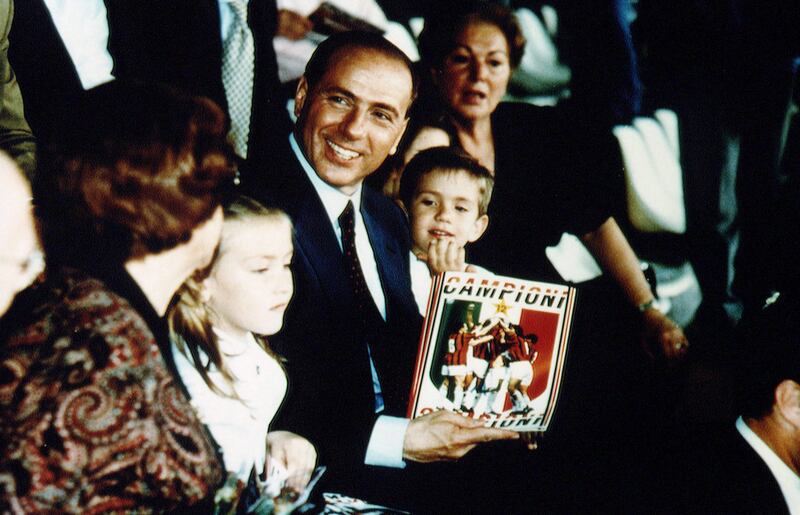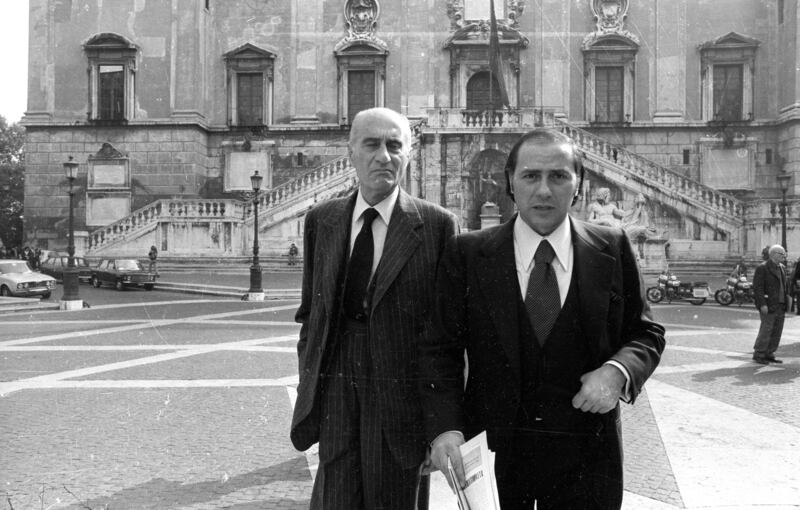The popularity of Silvio Berlusconi, the media mogul and three-time prime minister of Italy who has died aged 86, was always hard to gauge.
His ownership of AC Milan during their glory days of the late 1980s into the 90s led to almost universal acclaim across the fan base and admiration among football followers but even this faded, interrupted by slumps and controversy.
If the club was acquired at the high point of a business career, it was one measure of success that allowed him to enter politics to shake up the multi-coalition Italian political scene. Berlusconi was prime minister for nine years and led three Italian governments between 1994 and 2011.
Perhaps the high points of his periods in power came with the government he led after gaining 45.4 per cent of the vote in the 2001 election. Things went well as Berlusconi enjoyed an extended period at the helm of government during which he backed the allied invasion of Iraq, hosted world leaders at his Mediterranean retreat, and resigned briefly only to then win a parliamentary vote of confidence and form a new government.
One feature of his time in power was Berlusconi's courting of Libya's Muammar Qaddafi with a friendship treaty, signed in August 2008. There were heavy investments in Italy by the Tripoli leadership and a $5 billion deal to stop migrant boats arriving from North Africa. The pair strolled together in Rome's squares during a series of trips which made headlines for the colourful nature of their encounters. The following year Qaddafi received guests in a tent erected at Villa Doria Pamphili, a 13th-century palace in the Italian capital.
Berlusconi was born in Milan on September 29, 1936. He displayed an early zeal for turning a profit by setting up puppet shows for which he charged an admission fee. Unremarkable schooling was followed by a law degree at the University of Milan, during which he worked as a cruise ship singer, a vacuum cleaner salesman and a photographer – he would even do fellow students’ assignments for payment.
He moulded Milan into the first modern-day superclub and his stewardship – which led to a host of European and domestic titles – serves as a handy metaphor for his life, punctuated by highs and lows, successes and scandals.
His glitzy arrival at AC Milan on July 8, 1986, oozed razzmatazz, featuring dancers, Wagner’s Ride of the Valkyries blaring from a sound system, and a master of ceremonies describing the scene as three helicopters landed on the training pitch, carrying the players and coaches.
Last to emerge was the club’s new owner. Taking the microphone, he told gathered fans he was a lifelong supporter, just like them – although claims persisted that in his childhood he favoured city rivals Internazionale – and a ‘Grazie Silvio!’ banner was gleefully unfurled.
The message was clear – Silvio Berlusconi was here to transform the fortunes of the sleeping giant. Whatever adulation he received was not enough, however. “They speak of the Milan of [previous managers] Sacchi, Zaccheroni and Ancelotti and never talk of the Milan of Berlusconi. Yet it is I who for 18 years has been picking the team, stating the rules and buying the players. It seems as if I do not exist,” he lamented in 2004.
Berlusconi had a knack for opportunism and, sensing a boom in the early 1960s, he borrowed capital to establish two property development firms, having rejected his father’s offer of a job in his bank. Next came the media world, where a string of shrewd investments in TV made him the dominant force in the market and his tentacles extended into France, Spain and Germany. The prosperity of his vast media monopoly earned him enormous wealth and the clout to buy the football club he said he so loved.
Berlusconi was blessed with supreme confidence and held himself in high esteem, once describing himself as beyond comparison. Not only did he envisage a career in politics, he set his sights high and thanks largely to a corruption scandal obliterating Italy's political core, within months of founding Forza Italia, he had beaten a path to the prime ministerial office, winning the 1994 election. This administration was short-lived, however, as the following year his downfall – the first of several – was sealed when a bribery inquiry involving one of his companies prompted coalition partner Umberto Bossi to withdraw from the government, in turn forcing Berlusconi to resign. Subsequent fraud and corruption convictions were overturned and he continued to spearhead Forza Italia. He fared better in 2001, running on a promise to boost jobs and services while cutting taxes and vowing to address the conflict of interest his widespread business holdings might present.
He retained office until 2006, when on the campaign trail he proclaimed himself “the Jesus Christ of politics”, perhaps feeling untouchable. He lost the election to Romano Prodi. Berlusconi had fared poorly in a televised debate when he gave some unconvincing answers and became increasingly agitated, for all to see. Similar exasperation was stirred by the poll result itself, which Berlusconi refused to accept, alleging irregularities, and months later he was told he would be tried over alleged tax fraud, false accounting and embezzlement. As the strain of the fragmented political maelstrom appeared to be taking its toll, he collapsed in public and had a pacemaker fitted by a heart surgeon in the US. Still, a defiant Berlusconi glossed over this as merely a minor setback. “I'll make it to 120 years, even though I'm still a mortal,” he said.
A whirlwind of scandals, trials and allegations ensued. He was again elected prime minister in May 2008 – “I always win, I'm cursed to win”, the messianic Berlusconi said – and was subjected to 50 votes of confidence within three years. Sordid allegations emerged that he hosted what became known as “bunga bunga” parties, with Italy’s economy creaking all the while.
He suffered broken teeth and a broken nose when a statue of Milan’s magnificent Duomo Cathedral was hurled in his face, outside the building itself. In the run-up to the incident, Berlusconi had fronted up to protesters, crowing that he remained “young and on form”, unbuttoning his shirt to reveal he was “not even wearing a vest”.
In early 2011, he was again ordered to stand trial on charges of sleaze and abuse of office, allegedly bribing witnesses. He lost his parliamentary majority in November of that year, bringing to an end his final stint as PM.
He was convicted several times, although all but one were overturned and even that outstanding conviction, in August 2013 for tax fraud, did not lead to jail. It did come with a five-year proscription from politics, although this was surpassed by a six-year ban from holding public office upon his expulsion from the senate. Berlusconi rallied to mount a comeback from 2017-2019 but, an improbable shot at the Italian presidency aside – when one Italian national newspaper ran a petition denouncing him as “the guarantor of corruption” – ultimately his days in Italy’s political limelight were done.
Away from the public glare, Berlusconi married Carla Elvira Dall'Oglio in 1965, and they had two children, Marina and Pier Silvio. The couple divorced, his wife citing that she could no longer prevent him from “looking ridiculous before the world”. In 1990, he married Veronica Lario, with whom he had another three children, Luigi, Barbara and Eleonora. The marriage lasted until 2014. He has 10 grandchildren.
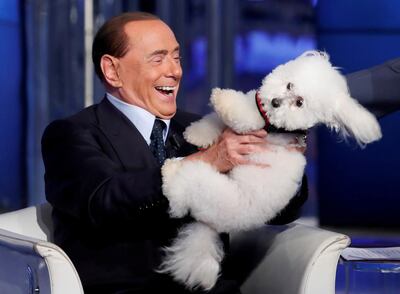
Berlusconi’s eventful career in many ways mirrored Italian politics itself: fickle, erratic and never quite able to shake off the spectre of scandal and corruption. Many of his political triumphs were achieved by exploiting the void left by the calamities of others. The mere fact that he dismissed the litany of legal troubles that pursued him underscored his dogmatic outlook and unshakable self-belief.
Throughout the time Berlusconi governed AC Milan, the situation at the club was not dissimilar. A roller-coaster ride of sorts, with soaring crests and dismal troughs, but one most would regard as unforgettable.
